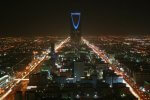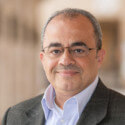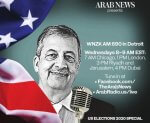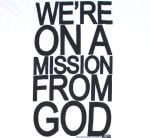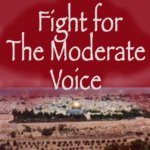The Holy Month of Ramadan for Muslims will begin June 17, or at the first sight of the new moon and will continue for 29-30 days depending on the complete cycle of the moon. It is a time of religious observation, recommitment to faith and a time of fasting for observant Muslims around the world. It is very similar in religious nature to fasting by Christians during Lent and Jews during Shabbat.
By Ray Hanania
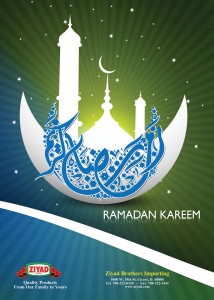
Ramadan is an important religious event for nearly 1.8 billion people who observe the Islamic faith, including more than 7 million Muslims who live in the United States. It occurs in the 9th month of the Muslim calendar, and requires believers to
Much is misunderstood about Islam and Muslims, mainly because of political activism and also stereotypes and racism, but Islam is a religion that is very close to the religions practiced by the majority of Americans, Christianity, and also to Jews.
Muslims come from many nations and are not just Arabs from the Middle East. In America, Muslims include Arabs, Pakistanis, Indians, Asians, Bosnians and more. Islam was founded in the 7th Century by the Prophet Muhammed, and recognizes the Biblical prophets from both Judaism and Christianity including such Holy figures as Moses, Abraham, Jesus and the Virgin Mary.
Mecca in Saudi Arabia is considered the holiest site to Muslims because that is where the Prophet Muhammed was born and that is also where the Prophet Muhammed received the revelations of the Qu’ran, the Islamic Holy Book that is often compared by Jews and Christians to the Old and New Testament. The revelations occurred on night of Laylat Al Qadr, which is one of the last 10 evenings of Ramadan.
To observe Ramadan, adult Muslims are required to fast from dawn until dusk every day during the month, with exceptions the disabled, elderly, women who are pregnant and individuals who have illnesses. Children do not fast. The Fast consists of abstaining from eating, drinking and smoking. Muslims also refrain from having sexual relations and bad conduct.
This practice of fasting during Ramadan is very similar to the religious practice of Christians who fast during the 40-days of Lent which begins on Ash Wednesday and ends of the Holy Saturday before Easter Sunday. The 40-days of fasting during Lent represents the 40days that Jesus was in the wilderness resisting the temptations of Satan. Many generations ago, Christians would fast almost completely but in recent years, Christians give up something they enjoy during the 40-days as a reverence to Jesus and to their religion. Lent fasting will often be limited to excluding meat and eating Fish on Fridays. The purpose of Lent is for Christians to reflect on the life of Jesus Christ, much the same as Muslims who spend Ramadan reflecting on the life of the Prophet Muhammed.

Religious fasting is also practiced by Jews who fast during the 10 days leading up to Yom Kippur, the Day of Atonement, the most important holiday in the Jewish calendar. Orthodox Jews also fast from sundown on Fridays to Sundown on Saturdays, called the Sabbath (or Shabbat). During Shabbat, Jews not only refrain from cooking but they also refrain from using modern-day conveniences such as turning on and off lights, watching television, using telephones or driving in cars.
Devout Muslims pray every evening reciting different chapters of the Qu’ran until the entire Qur’an is read by the Eid Al Fitr, or the Taraweeh prayer which is recited after Isha prayers in mid-evening.
Understanding Ramadan and its similarities to the practices of Christians and Jews can help ease hostilities that are often stoked for political reasons by many non-Muslims. More and more, Ramadan is being accepted as a holiday in the West, respecting the religious traditions of Muslims along with the religious traditions of Christians and Jews.
Muslims will break their fast during Ramadan at sunset before the Maghrib prayers after the Azaan, or the “call for prayers.” Muslims will enjoy dates, as a traditional first food to break the fast in the evening. The meal in which Muslims break their fast in the evening is called the Iftar, and it is not unusual for non-Muslims to be invited to join in the breaking of the fast or the Iftar Dinner. The White House began observing the Iftar dinner during the administration of President Bill Clinton. The first Iftar at the White House was hosted by First Lady Hillary Clinton when she commemorated the Ramadan Eid celebration at a dinner in 1996.
The greeting for a Muslim during Ramadan is “Ramadan Mubarak,” or “Blessed Ramadan.” The Eid or holiday is also often acknowledged by saying “Eid Mubarak” or “Blessed Holiday.”
During Ramadan, Muslims turn to celebrate the Iftar with traditional Middle East foods including lamb, rice, and many varieties of salads, hummus and breaking bread. Like many Christians and Jews, most Muslims do not eat pork products not just during their religious holidays but also throughout their lives. To get more information on Mediterranean foods, visit the website of Ziyad Brothers Importing, one of the nation’s largest distributors of Mediterranean foods.
Ramadan is as much of an American religious tradition as are religious holidays like Easter and Yom Kippur to Christians and Muslims.
Happy Ramadan to our Muslim friends from the Arab Daily News editorial staff.


- Israelisnipers shooting and killing hospital workers in Gaza - December 11, 2023
- CAIR Condemns Israeli Executions of Wounded, Unarmed Palestinian in West Bank - December 11, 2023
- Arab and Muslim American voters face a “simple choice” between Biden’s inhumanity and Trump’s edgy politics - December 9, 2023














